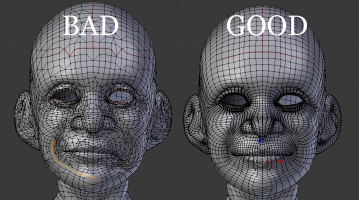Top 10 Best Books On Infectious Disease
With increased awareness of public health, global health, and diseases, there has been a renewed interest in learning more about the history and incredible ... read more...stories associated with some of the world's most difficult challenges. Real life is often stranger – and more entertaining – than fiction when it comes to infectious disease and public health efforts. With that in mind (and after receiving numerous requests for recommendations), Toplist sets out to compile a list of the best books on infectious disease that will entertain, educate, and open up an entirely new world for those with no prior knowledge of infectious disease.
-
John M. Barry is the authors of Rising Tide: The Great Mississippi Flood of 1927 and How It Changed America; Power Plays: Politics, Football, and Other Blood Sports; The Transformed Cell: Unlocking the Mysteries of Cancer (cowritten with Steven Rosenberg); and The Ambition and the Power: A True Story of Washington. He splits his time between New Orleans and Washington, D.C.
The Great Influenza: The Epic Story of the Deadliest Pandemic in History is a 2004 nonfiction book by John M. Barry that examines the 1918 flu pandemic, one of the worst pandemics in history. Barry focuses on what was happening in the United States at the time and attempts to contextualize it against the backdrop of American history and within the context of medical history. The book describes how the flu began in Haskell County, Kansas, USA, and spread to the US Army training camp Camp Funston, Kansas, USA, and around the world during World War I through troop movements.
The Great Influenza, with its magisterial scope and depth of research, provides us with a precise and sobering model as we confront the epidemics looming on our own horizon. As Barry summarizes, "The final lesson of 1918, a simple one yet one most difficult to execute, is that...those in authority must retain the public's trust. The way to do that is to distort nothing, to put the best face on nothing, to try to manipulate no one. Lincoln said that first, and best. A leader must make whatever horror exists concrete. Only then will people be able to break it apart."
At the height of World War I, the most lethal influenza virus in history erupted in a Kansas army camp, moved east with American troops, and then exploded, killing up to 100 million people worldwide. It killed more people in 24 months than AIDS did in 24 years, and it killed more people in a year than the Black Death did in a century. But this was not the Middle Ages, and 1918 was the first time science and epidemic disease collided.
Author: John M. Barry
Link to buy: https://www.amazon.com/dp/0143036491
Ratings: 4.6 out of 5 stars (from 9442 reviews)
Best Sellers Rank: #12,734 in Books
#7 in Viral Diseases (Books)
#9 in Communicable Diseases (Books)
#22 in History of Medicine (Books)
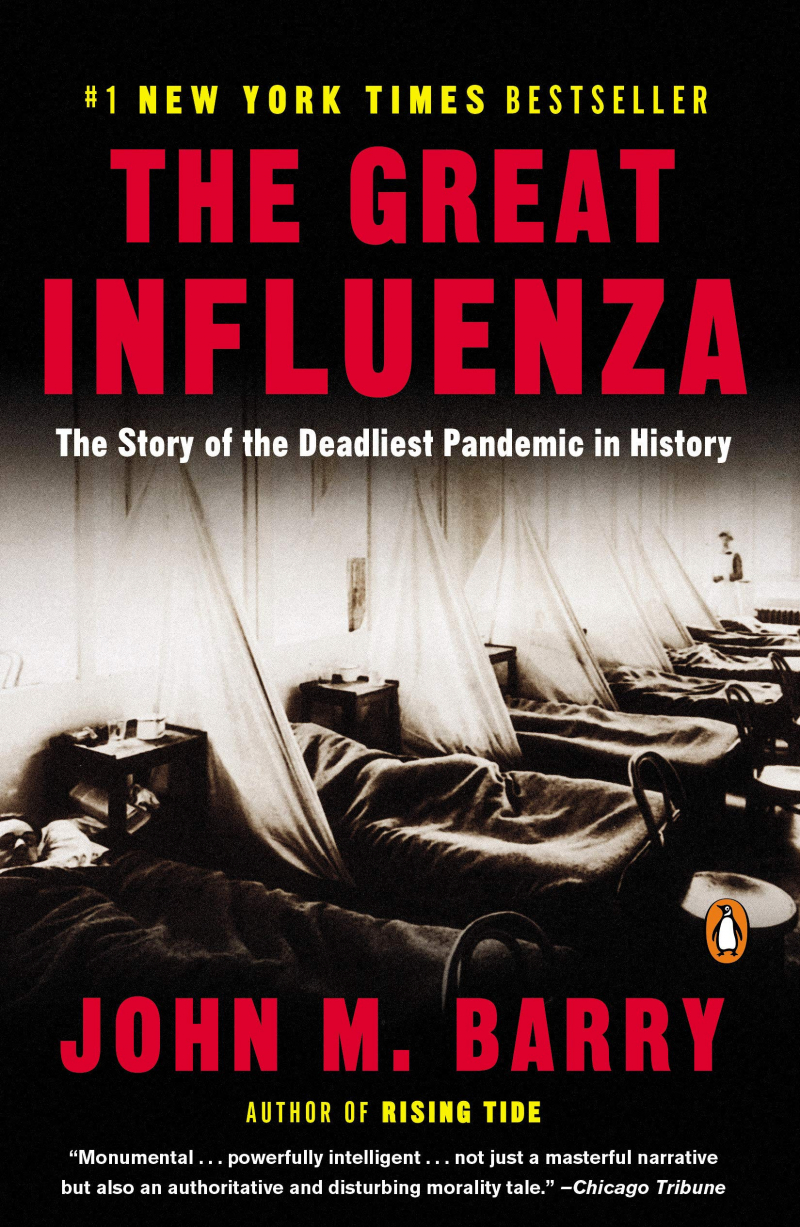
amazon.ca 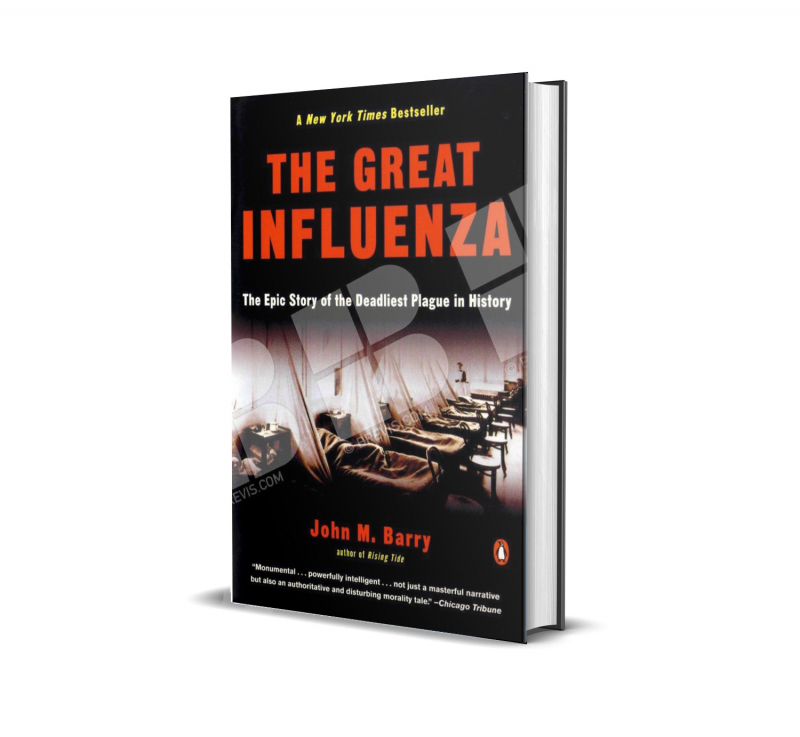
pdfmart.co.ke -
While working at the Harvard School of Public Health and the New York newspaper Newsday, Laurie Garrett wrote her first best-selling book, The Coming Plague: Newly Emerging Diseases in an Unbalanced World. Garrett was a Fellow at Harvard during the 1992-1993 academic year, where she collaborated closely with the emerging diseases group, a group of faculty concerned about the outbreak of previously unknown or rare viruses and bacteria. Farrar, Straus and Giroux published the book in hardcover in 1994.
After decades of believing that infectious disease would be eradicated, people on all continents are now under siege from AIDS, drug-resistant tuberculosis, cholera resistant to chlorine water treatment, and exotic viruses that can kill in hours.
Laurie Garrett's The Coming Plague, based on extensive interviews with leading experts in virology, molecular biology, disease ecology, and medicine, as well as field research in Sub-Saharan Africa, Western Europe, Central America, and the United States, takes readers on a harrowing fifty-year journey through the history of our battles with microbes, from the savannas of eastern Bolivia to the rain forests of the northern Democratic Republic of the Congo. This book is a work of investigative reporting unlike any other, as well as a wake-up call to a world that has become complacent in the face of infectious disease, offering a sobering and forewarning about the dangers of ignoring the coming plague.
Author: Laurie Garrett
Link to buy: https://www.amazon.com/dp/1250796121
Ratings: 4.7 out of 5 stars (from 1374 reviews)
Best Sellers Rank: #335,669 in Books
#133 in Epidemiology (Books)
#148 in Microbiology (Books)
#261 in Sociological Study of Medicine
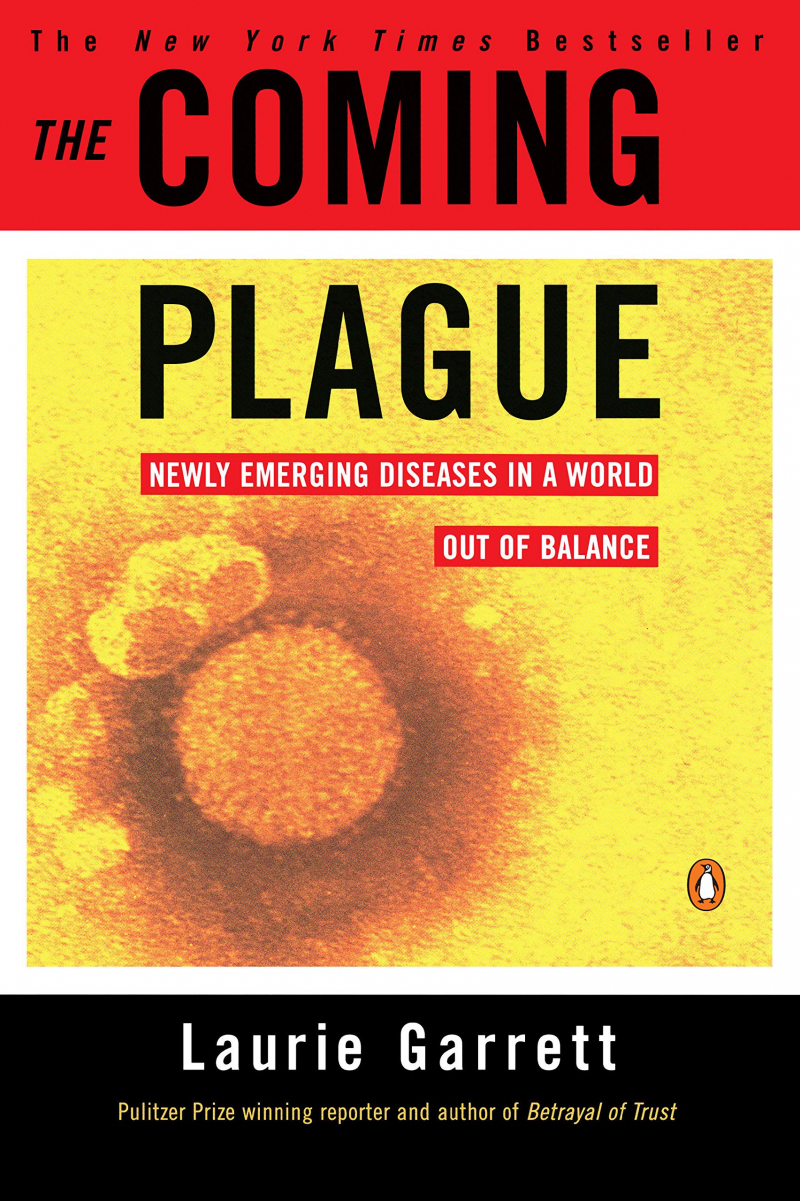
amazon.co.uk 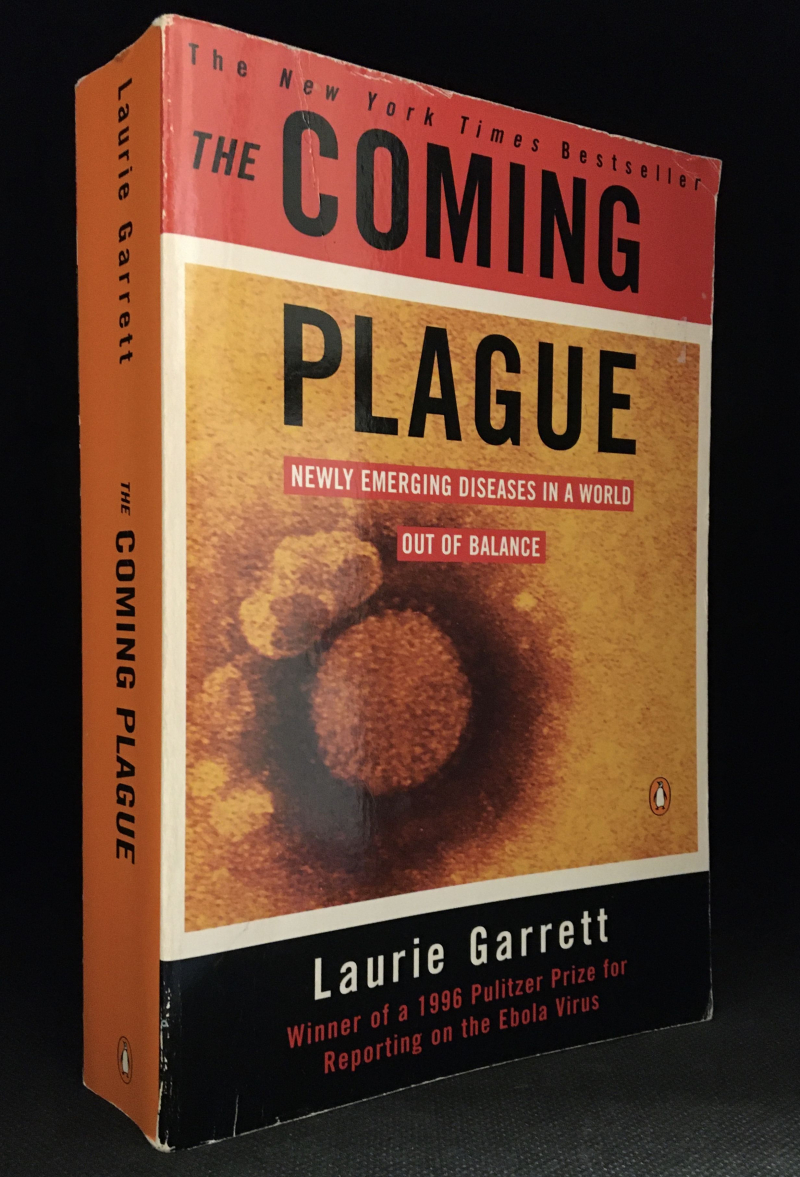
biblio.com -
Maryn McKenna is an award-winning science and medical writer and the author of Beating Back the Devil: On the Front Lines with the Epidemic Intelligence Service's Disease Detectives (named one of the top 10 science books of 2004 by Amazon). She currently works as a contributing writer for the University of Minnesota's Center for Infectious Disease Research and Policy and as a media fellow for the Henry J. Kaiser Family Foundation. She graduated from Georgetown University and Northwestern University's Medill School of Journalism, as well as Harvard Medical School. She currently resides in Minneapolis.
They are the disease detective corps of the US Centers for Disease Control and Prevention (CDC), the federal agency responsible for tracking and preventing disease outbreaks and bioterrorist attacks around the world. They are formally known as the Epidemic Intelligence Service (EIS)—a group founded more than fifty years ago out of fear that the Korean War would result in the use of biological weapons—and, like traditional intelligence operatives, they work largely in anonymity. They are not household names, but they were among the first to deal with outbreaks of hantavirus, Ebola, and AIDS over the years. Every day, they work to protect us by tracking down deadly threats that we overlook until they dominate the news, such as West Nile virus, anthrax, and SARS.
Maryn McKenna, the only journalist ever granted full access to the EIS in its fifty-three-year history, follows the first class of disease detectives to arrive at the CDC after September 11, the first to confront not only naturally occurring outbreaks but also the man-made threat of bioterrorism. They are talented researchers, many of whom have young families, who trade two years of low pay and extremely long hours for the chance to be part of the group on the frontlines, in the yellow suits and masks, that has helped eradicate smallpox, push back polio, and solve the first major outbreaks of Legionnaires' disease, toxic shock syndrome, and E. coli O157, and works to combat every new disease before it becomes an epidemic.
Beating Back the Devil is an urgent, exhilarating, and compelling book that takes you inside the world of these medical detectives who are trying to stop the next epidemic—before the epidemics stop us. You thought you knew what an infectious epidemiologist did after reading The Hot Zone. McKenna's meticulous research gives you an inside look at how CDC outbreak investigators dealt with Ebola, SARS, and other diseases.
Author: Maryn McKenna
Link to buy: https://www.amazon.com/dp/1439123101
Ratings: 4.6 out of 5 stars (from 54 reviews)
Best Sellers Rank: #941,629 in Books
#439 in Epidemiology (Books)
#626 in Communicable Diseases (Books)
#1,157 in History of Medicine (Books)
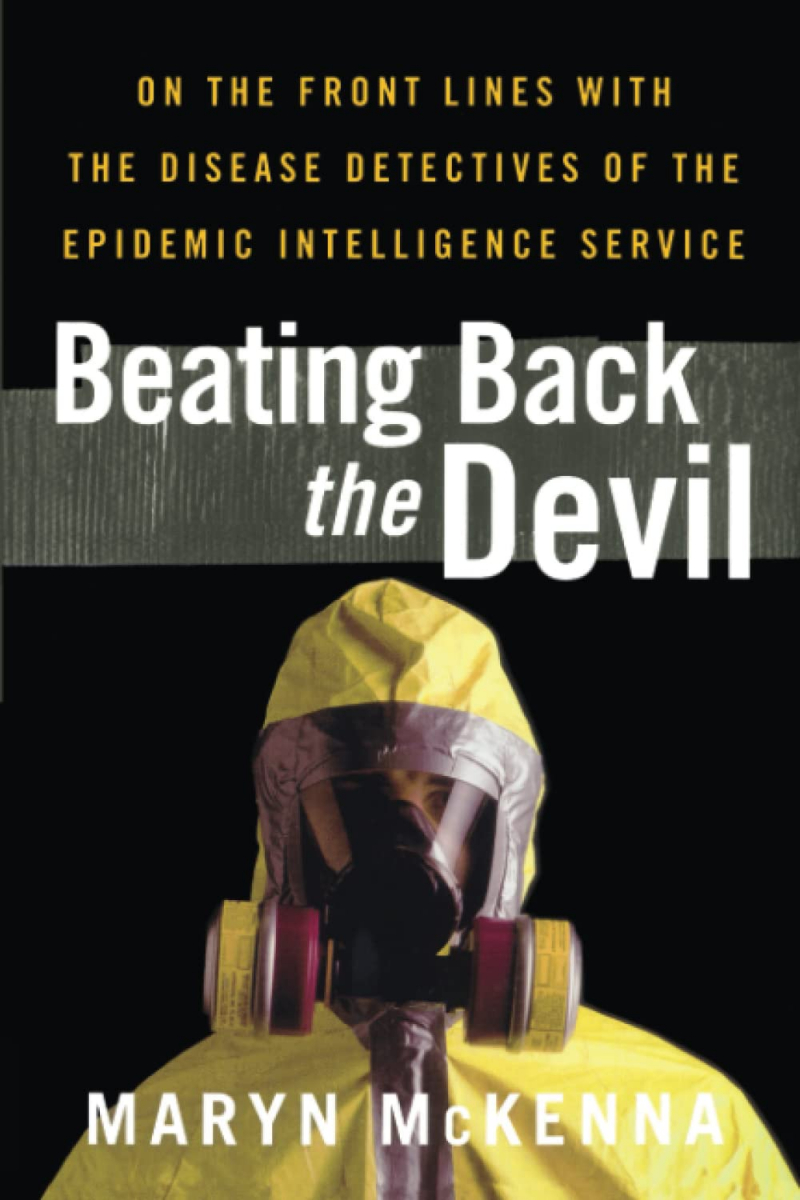
https://www.amazon.com/ 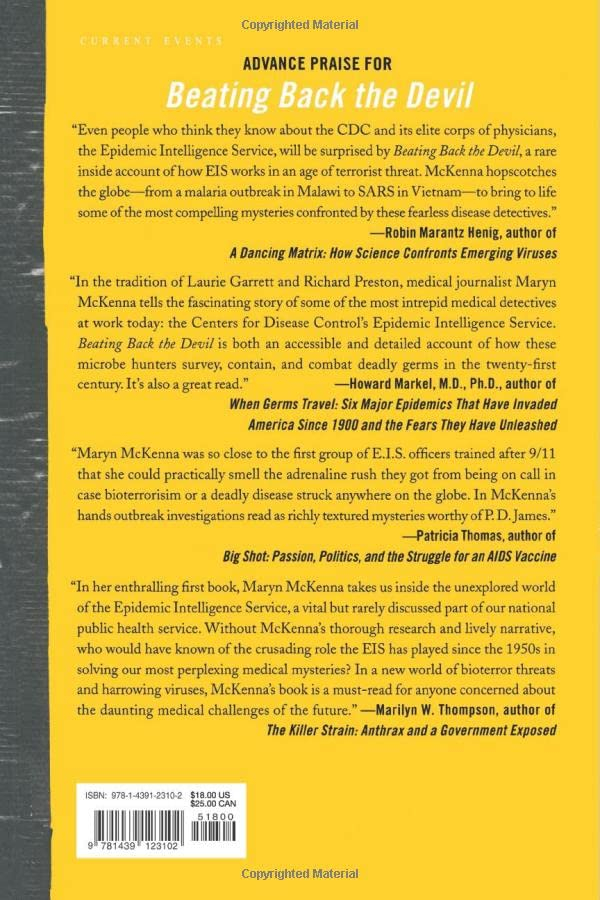
https://www.amazon.com/ -
David Quammen is the author of several books, including The Song of the Dodo. He has received the John Burroughs Medal for nature writing, an Academy Award in Literature from the American Academy of Arts and Letters, a PEN Award for the Art of the Essay, and the National Magazine Award (three times). Quammen is also a National Geographic contributor. He currently resides in Bozeman, Montana.
Spillover is the book for you if you're interested in infectious or zoonotic diseases. David Quammen investigates the causes and consequences of spillover, the phenomenon in which a new pathogen is transmitted to humans from wildlife. He follows scientists around the world as they investigate the origins of diseases such as ebola and avian flu, taking them through remote jungles and high-security labs.
The novel coronavirus engulfed the world in a global pandemic in 2020, killing hundreds of thousands. Bats are the source of the previously unknown virus. This phenomenon, in which a new pathogen enters humans from wildlife, is known as spillover, and it may happen again soon.
Prior to the emergence of our most recent health crisis, renowned science writer David Quammen was traveling the world to better understand the devastating potential of spillover. For five years, he followed scientists to a Bangladeshi rooftop, a Congolese forest, a Chinese rat farm, and a New York suburbia woodland, as well as high-biosecurity laboratories. He spoke with survivors and gathered stories from the dead. He discovered surprises in the most recent research, alarm among public health officials, and deep concern among researchers.
Among the best books on infectious disease, Spillover is a gripping drama that conveys the science, history, mystery, and human anguish of disease outbreaks. And it poses questions that are more pressing than ever before: What innocent creature, in what remote landscape, will give birth to the Next Big One? Are pandemics separate misfortunes, or are they linked? Are they just happening to us, or are we causing them? What options are there? Quammen investigates the origins of Ebola, Marburg, SARS, avian influenza, Lyme disease, and other bizarre cases of spillover, including the harrowing, unexpected story of how AIDS began with a single Cameroonian chimp. The end result is more than just a clear work of reporting. It's also an elegantly told story about a journey through time and landscape in search of a new understanding of how our world works—and how we can survive within it.
Author: David Quammen
Link to buy: https://www.amazon.com/Spillover-Animal-Infections-Human-Pandemic-ebook/dp/B00856PC4K/
Ratings: 4.7 out of 5 stars (from 2722 reviews)
Best Sellers Rank: #72,577 in Kindle Store
#2 in Microbiology (Kindle Store)
#3 in Epidemiology (Kindle Store)
#5 in Communicable Diseases (Kindle Store)
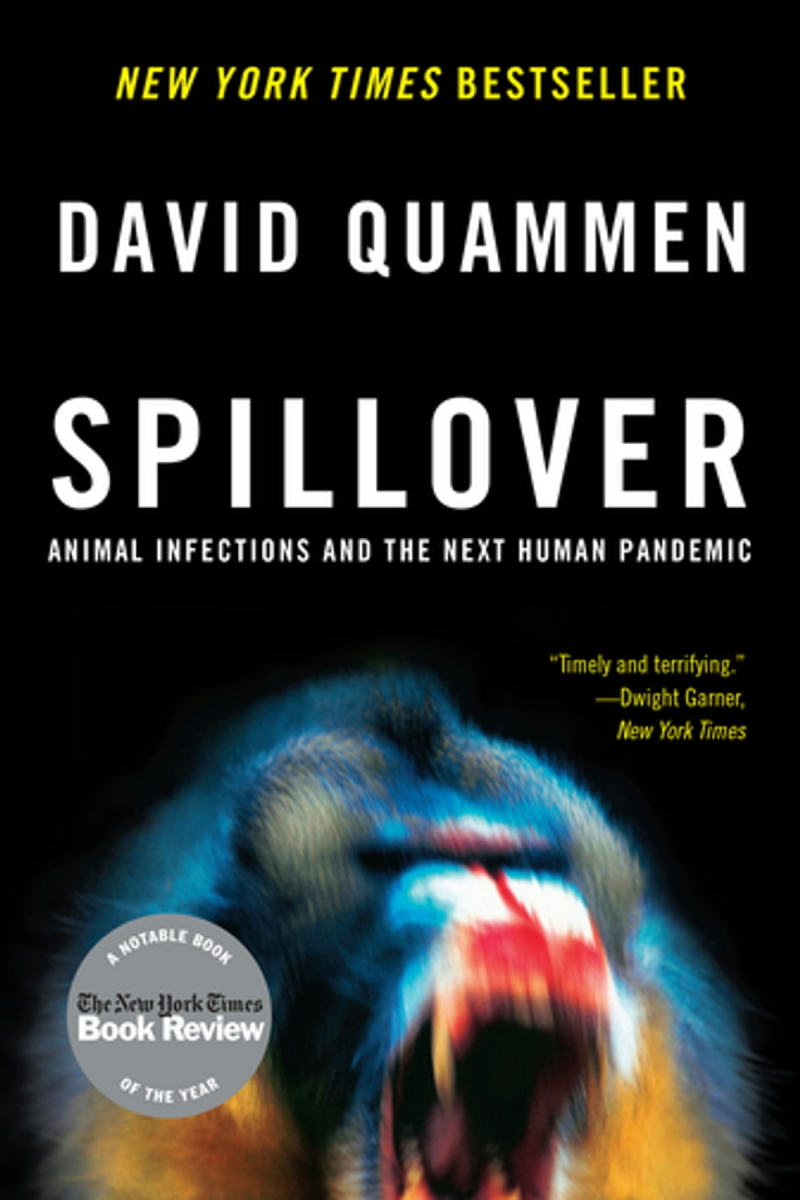
kobo.com 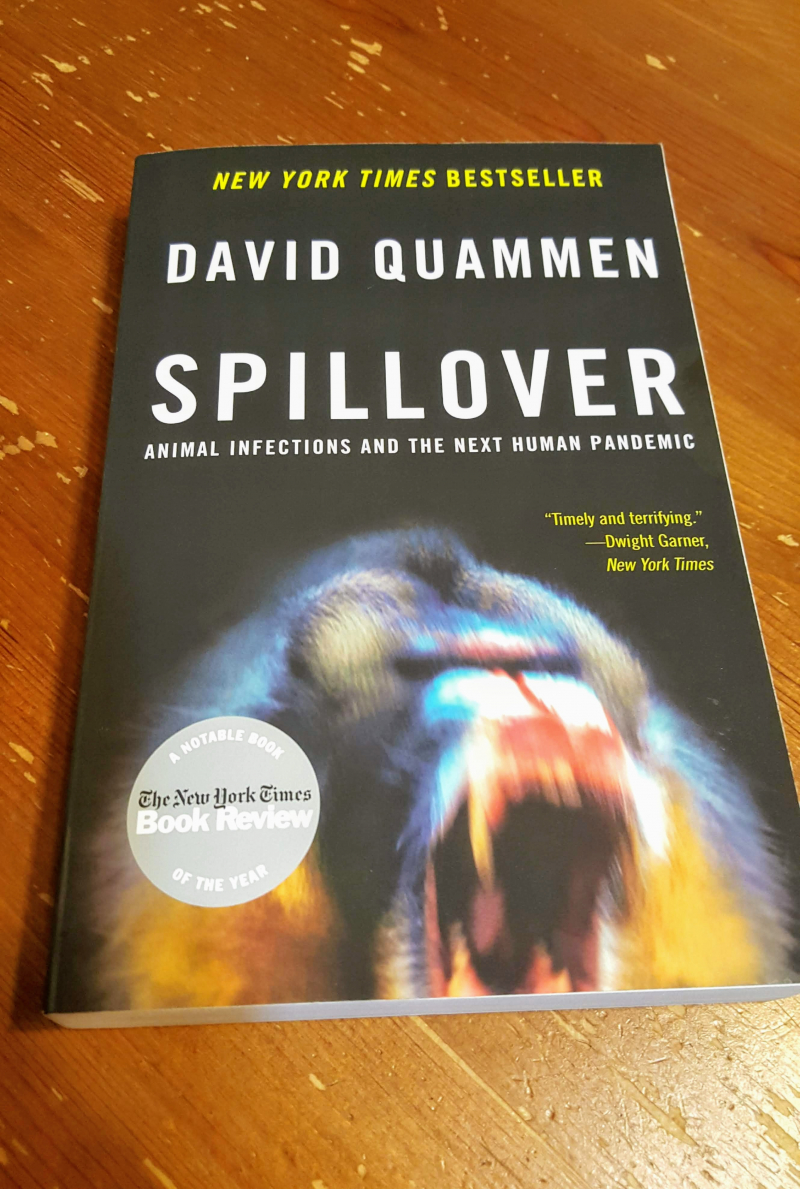
mobile.twitter.com -
Steven Johnson has written eleven best-selling books, including Where Good Ideas Come From, Wonderland, and Extra Life. He hosts and co-created the Emmy-winning PBS/BBC series How We Got To Now, as well as the podcast American Innovations. His wife and three sons live in Brooklyn and Marin County, California.
It's the summer of 1854, and London is just emerging as one of the world's first modern cities. However, due to a lack of infrastructure—garbage collection, clean water, and sewers—necessary to support its rapidly growing population, the city has become the ideal breeding ground for a terrifying disease that no one knows how to cure. As the cholera outbreak spreads, a doctor and a local priest are spurred to action—and eventually solve the most pressing medical mystery of their time.
In The Ghost Map, Johnson illuminates the intertwined histories of disease spread, city rise, and the nature of scientific inquiry in a triumph of multidisciplinary thinking, offering both a riveting history and a powerful explanation of how it has shaped the world we live in.
Steven Johnson presents us with history at its best: colorful, interconnected, and compelling. At its heart is a medical mystery, or what is now known as an epidemiological detective story... A historical writing masterpiece. The Ghost Map tells the story of the 1854 Broad Street cholera outbreak and features John Snow, the father of field epidemiology. If you want to learn more about the most severe cholera outbreak in Victorian London and the role of community in the evolution of epidemiology, you should read this book right away.
Author: Steven Johnson
Link to buy: https://www.amazon.com/Spillover-Animal-Infections-Human-Pandemic-ebook/dp/B00856PC4K/
Ratings: 4.5 out of 5 stars (from 1697 reviews)
Best Sellers Rank: #17,368 in Books
#9 in Viral Diseases (Books)
#12 in Communicable Diseases (Books)
#31 in History of Medicine (Books)
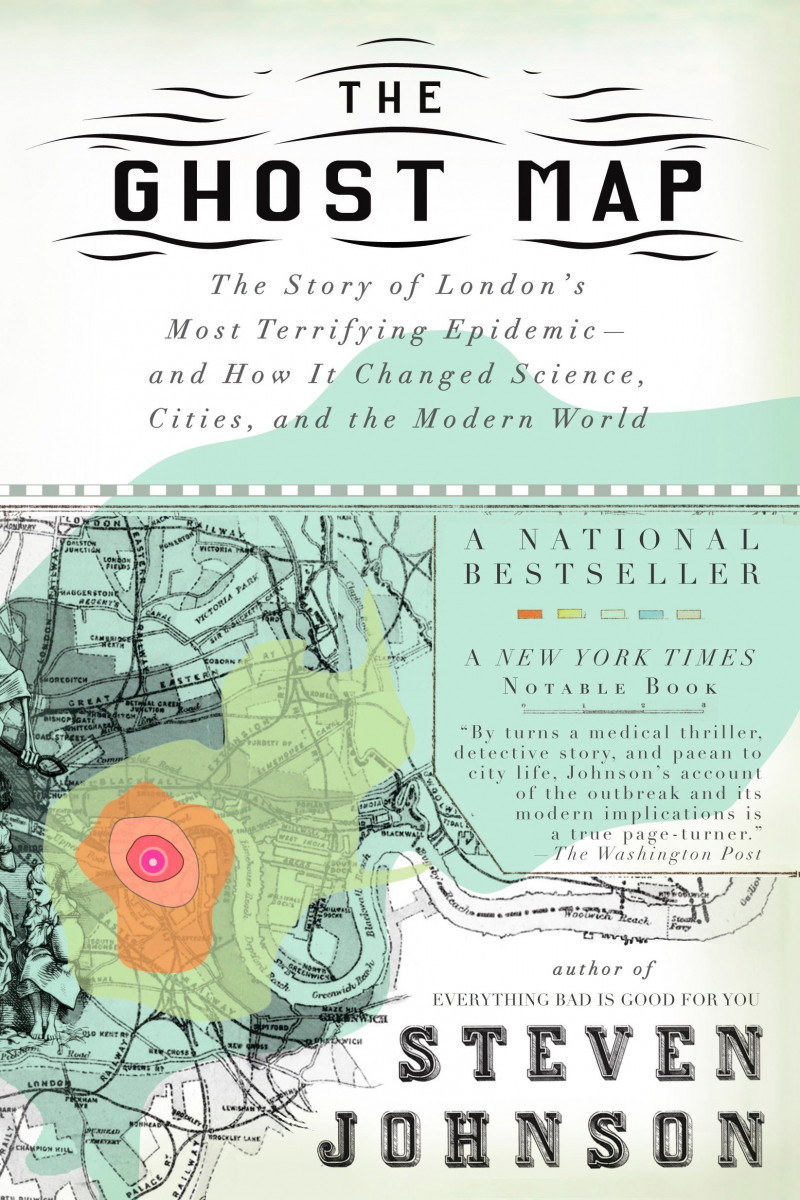
https://www.amazon.com/ 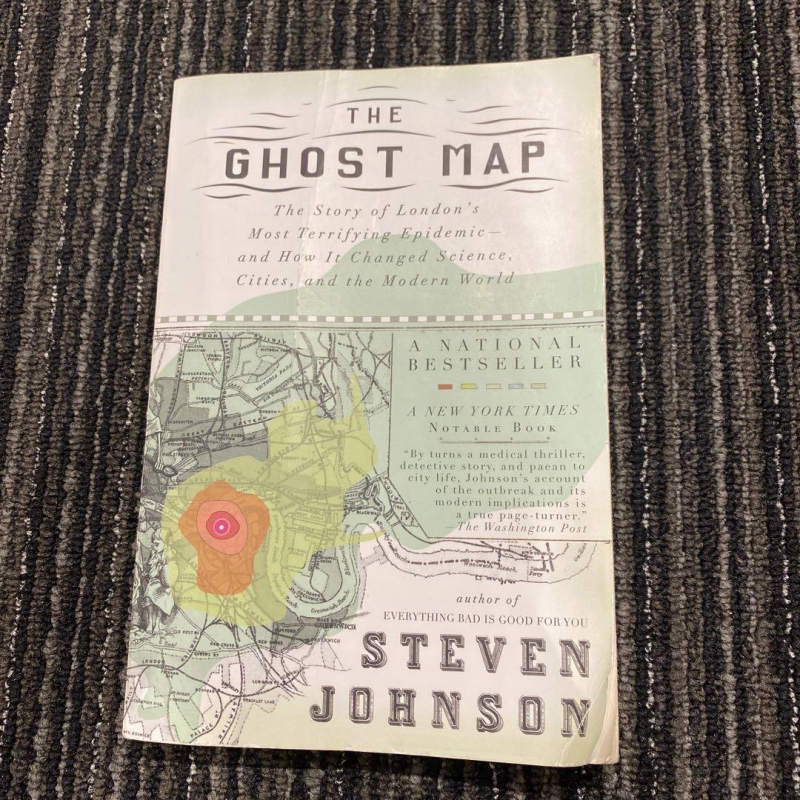
jp.mercari.com -
Dr. Ali S. Khan is the former director of the Centers for Disease Control and Prevention's Office of Public Health Preparedness and Response (PHPR). His professional career at the CDC has centered on emerging infectious diseases, bioterrorism, and global health security. He was in charge of the national public health security program, which had a $1.3 billion budget and 600 employees. The office is in charge of protecting communities in the United States from all public health threats. He now lives in Omaha with his family as the dean of the University of Nebraska's College of Public Health.
Throughout history, infectious diseases have been the most lethal killers: the Black Death, the Spanish Flu, and AIDS alone have killed over a hundred million people. We ignore this reality most of the time, but when a new threat appears imminent — Ebola, SARS, Zika, or coronavirus — we send our best and bravest doctors to contain it. People such as Dr. Ali S. Khan.
In his long career as a public health first responder – wearing a thin mask to protect himself from infected patients, sleeping under nets to keep scorpions out, making life-and-death decisions based on limited, suspect information – Khan has discovered that while rogue microbes will always be a problem, outbreaks are frequently caused by people. We make mistakes, politicize crises, and all too frequently fail to consider the consequences of our actions.
The Next Pandemic is a firsthand account of disasters such as anthrax and bird flu, as well as how we can do more to prevent their recurrence. It's both an engrossing story about our brushes with fate and an urgent lesson about how to prepare for the inevitable next pandemic. It is considered one of the best books on infectious disease.
Author: Dr. Ali S. Khan and William Patrick
Link to buy: https://www.amazon.com/gp/aw/d/1541768647/
Ratings: 4.5 out of 5 stars (from 87 reviews)
Best Sellers Rank: #596,720 in Books
#417 in Sociological Study of Medicine
#1,265 in Medical Professional Biographies
#3,191 in Public Affairs & Policy Politics Books
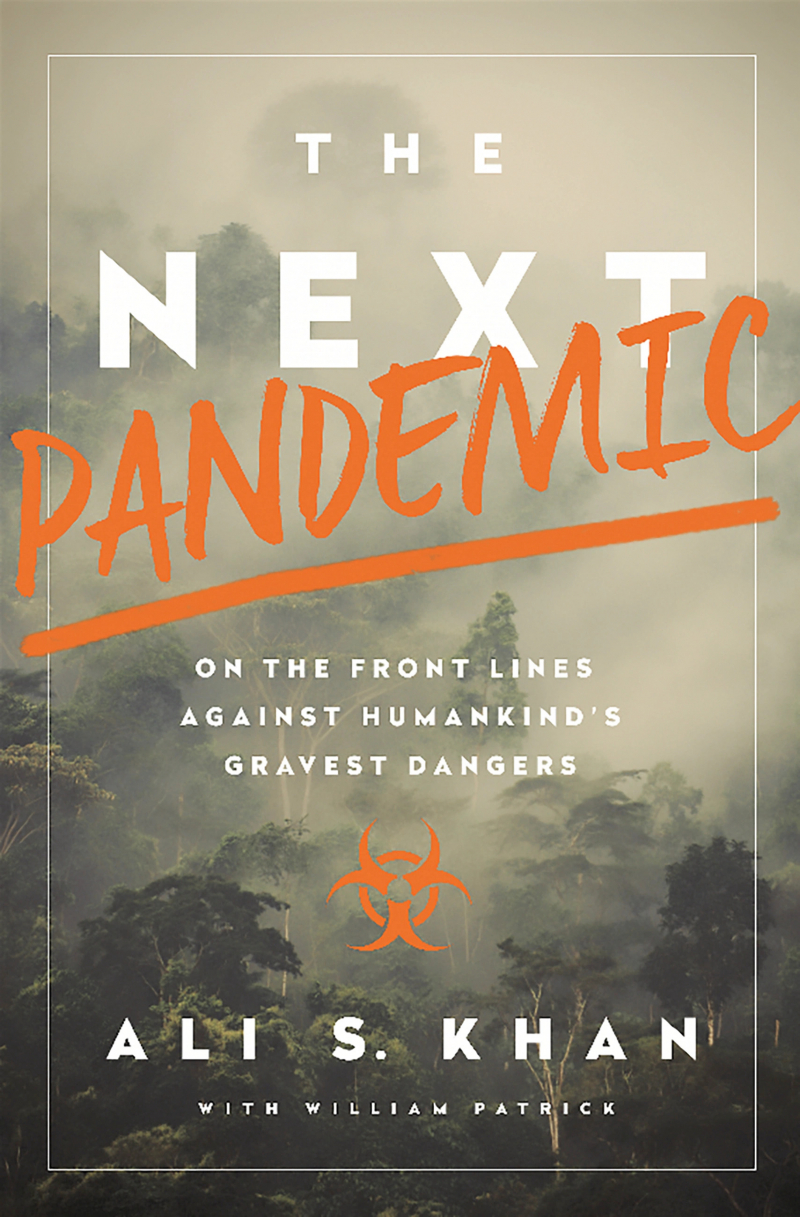
publicaffairsbooks.com 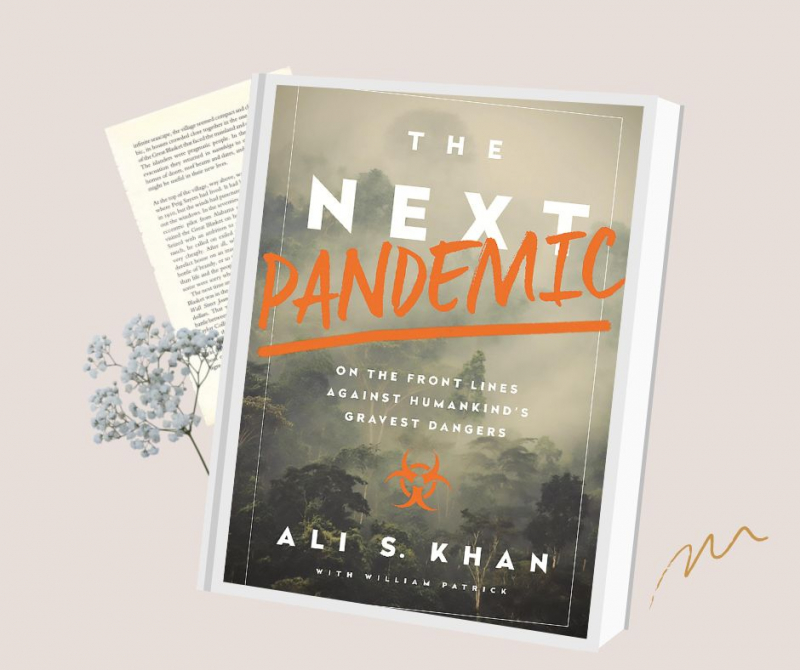
publicaffairsbooks.com -
Laura Spinney is a literary novelist and science journalist. She has two novels in English, and her science writing has appeared in National Geographic, Nature, the Economist, and the Telegraph, among other publications. Rue Centrale, her oral history portrait of a European city, was published in French and English in 2013.
In 1918, the Italian-Americans of New York, the Yupik of Alaska, and the Persians of Mashed shared almost nothing except a virus—one that triggered the worst pandemic in modern history and had a decisive impact on twentieth-century history. Spanish flu of 1918-1920 was one of the most devastating human disasters in history. It infected one-third of the world's population, from New York's poorest immigrants to the King of Spain, Franz Kafka, Mahatma Gandhi, and Woodrow Wilson. Despite a death toll of 50 to 100 million people, it is remembered as an afterthought to World War I.
In Pale Rider, Laura Spinney traces the overlooked pandemic to reveal how the virus spread across the globe, exposing humanity's vulnerability and putting our ingenuity to the test. The Spanish flu was as socially significant as both world wars, dramatically disrupting—and often permanently altering—global politics, race relations, and family structures, while spurring innovation in medicine, religion, and the arts. Spinney claims that it was partly responsible for pushing India to independence, South Africa to apartheid, and Switzerland to the brink of civil war. It also gave rise to the true "lost generation." Pale Rider masterfully recounts the little-known catastrophe that forever changed humanity, drawing on the most recent research in history, virology, epidemiology, psychology, and economics.
Author: Laura Spinney
Link to buy: https://www.amazon.com/Pale-Rider-Spanish-Changed-World/dp/1541736125/
Ratings: 4.5 out of 5 stars (from 1777 reviews)
Best Sellers Rank: #209,914 in Books
#121 in Viral Diseases (Books)
#146 in Communicable Diseases (Books)
#243 in History of Medicine (Books)
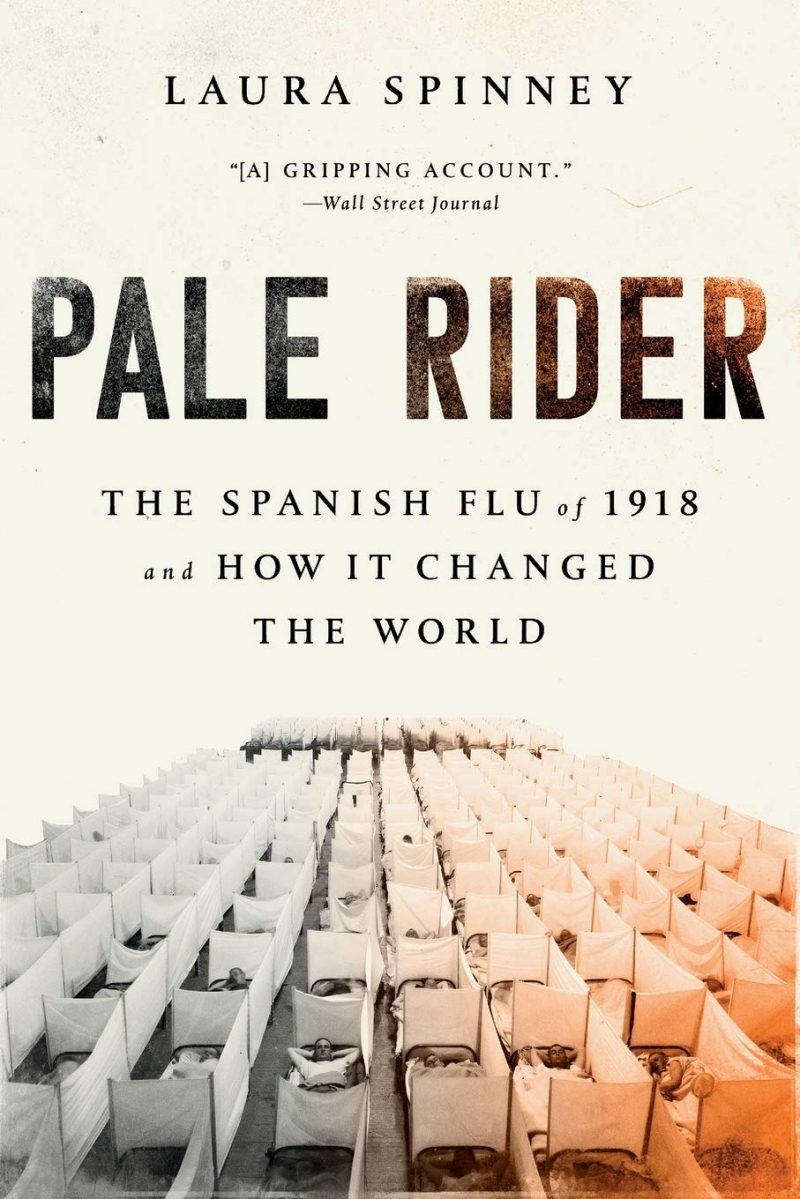
https://www.amazon.com/ 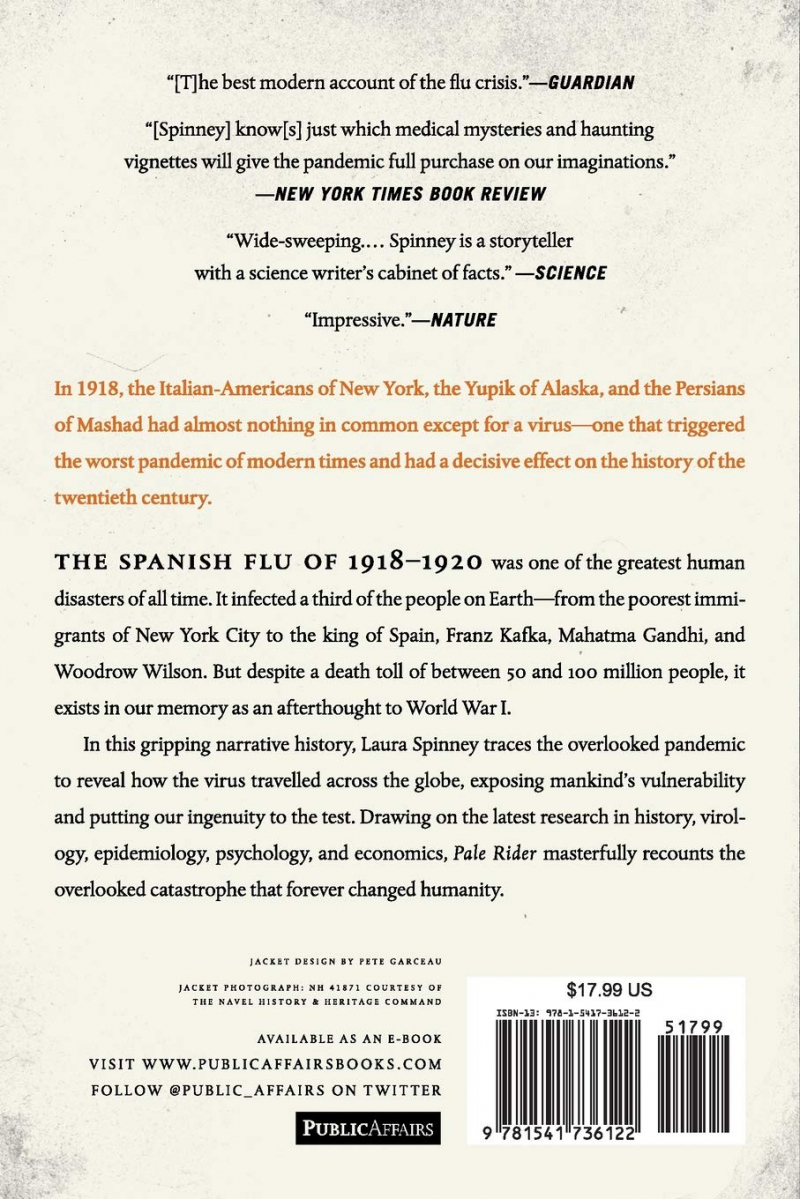
https://www.amazon.com/ -
Mark Olshaker co-wrote a celebrated series of nonfiction works with John Douglas, including the number one New York Times bestseller Mindhunter, as well as Journey into Darkness, Obsession, The Anatomy of Motive, and Unabomber, as well as the novel Broken Wings.
C. J. Peters is a world-renowned emerging disease expert and consultant. He has worked in the field of infectious diseases for more than three decades, most recently as the chief of special pathogens at the Centers for Disease Control and Prevention and as the chief of the Disease Assessment Division at the United States Army Medical Research Institute of Infectious Diseases. Peters led the unit in Reston, Virginia that contained the Ebola outbreak, and he was instrumental in establishing the Galveston National Laboratory at the University of Texas Medical Branch (UTMB), a Bio-safety Level 4 lab. He was appointed the John Sealy Distinguished University Chair in Tropical and Emerging Virology at UTMB in 2000.
In Virus Hunter, the author of The Hot Zone, who led the fight against Ebola, collaborates with the bestselling co-author of Mind Hunter to chronicle his extraordinary thirty-year career fighting deadly viruses.
Dr. C. J. Peters has spent three decades on the front lines of our biological battle against "hot" viruses all over the world. Throughout his career, he learned a plethora of lessons about our interspecies turf wars with infectious agents. Called in to contain a deadly hemorrhagic fever outbreak in Bolivia, he faced the despair of attempting to save a colleague who had accidentally infected himself with an errant scalpel. Working on the Machupo and Ebola viruses in Level 4 labs, he saw firsthand why expensive high-tech biohazard containment equipment is only as safe as the people who use it.
Because of new, emerging viruses and the reemergence of old, "vanquished" ones for which vaccines do not exist, there is a very real risk of a new epidemic spreading globally virtually overnight if proper surveillance and early intervention are not implemented. And the threat of foreign countries or terrorist organizations employing lethal airborne viruses—the poor man's nuclear arsenal—looms larger than ever.
Virus Hunter is a thrilling first-person account of what it is like to be a warrior in the Hot Zone, written in high-octane science writing at its best and most revealing. The book is among the best books on infectious disease.
Author: Mark Olshaker and C. J. Peters
Link to buy: https://www.amazon.com/Virus-Hunter-Thirty-Battling-Viruses/dp/0385485581/
Ratings: 4.5 out of 5 stars (from 96 reviews)
Best Sellers Rank: #358,888 in Books
#147 in Epidemiology (Books)
#163 in Microbiology (Books)
#767 in Medical Professional Biographies
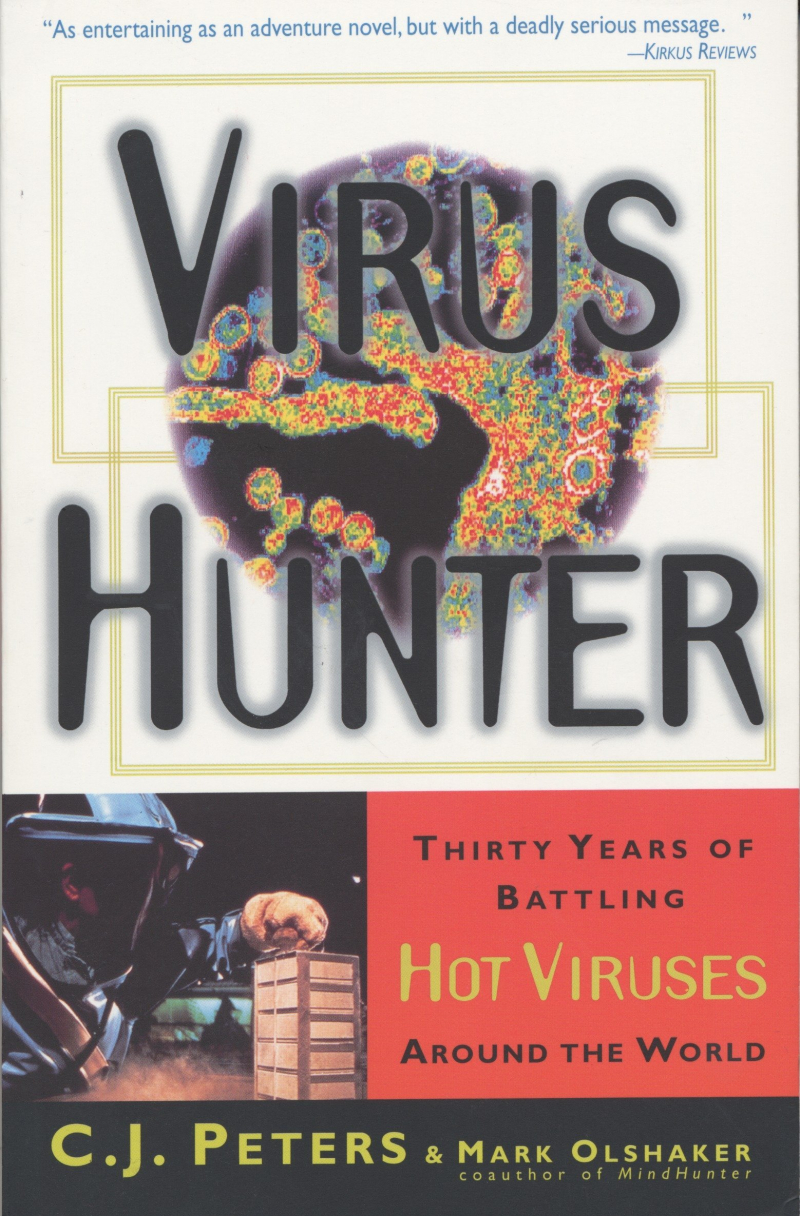
https://www.amazon.com/ 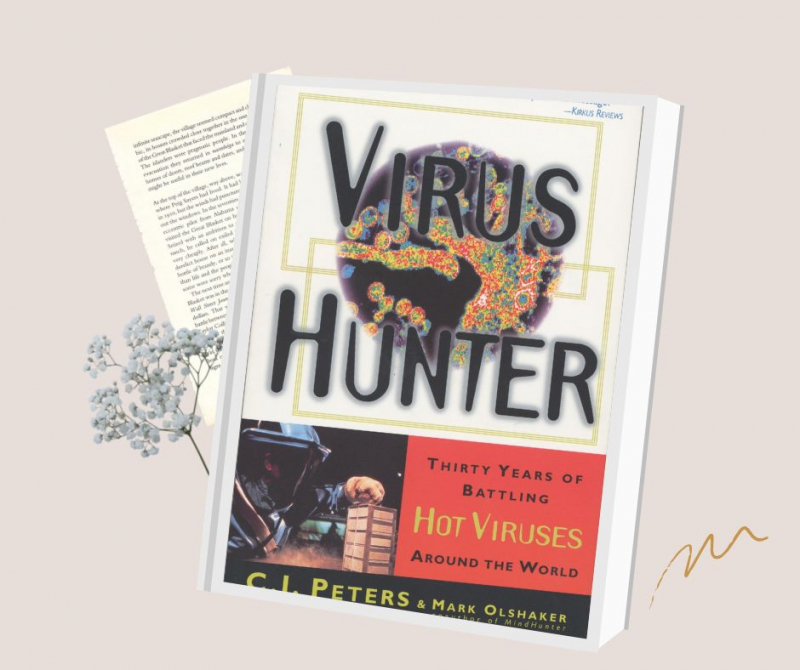
https://www.amazon.com/ -
Carl Zimmer is a New York Times columnist who has been writing for the paper since 2004. His writing has won several awards, including the Society for the Study of Evolution's Stephen Jay Gould Prize. Life's Edge: The Search for What It Means to Be Alive is his most recent book. His 2018 book, She Has Her Mother's Laugh: The Powers, Perversions, and Potential of Heredity, was named the best science book of 2018 by the Guardian and won the 2019 National Academies Communication Award. He is an adjunct professor of biophysics and biochemistry at Yale University, as well as an English lecturer. He lives in Guilford, Connecticut.
For years, scientists have warned that a pandemic was almost certain. It's finally arrived, and the rest of us have a lot to learn. Carl Zimmer, a science writer, is here to help us. In this slim volume, he tells the story of how the smallest living things known to science can bring an entire planet to a halt—and what we can learn from past defeats.
Planet of Viruses discusses threats such as Ebola, MERS, and chikungunya virus, as well as recent scientific discoveries such as a hundred-million-year-old virus that infected the common ancestor of armadillos, elephants, and humans. It also discusses why climate change may lead to even deadlier outbreaks. Zimmer's clear explanations and fascinating stories show how closely humans and viruses are linked. Viruses aided in the evolution of the first life forms, are responsible for many of our most lethal diseases, and will continue to shape our fate for centuries. A Planet of Viruses is a fascinating tour of a world we all need to better understand. It is thoroughly readable and, for all its candor about the threats, as reassuring as it is frightening.
Author: Carl Zimmer
Link to buy: https://www.amazon.com/Planet-Viruses-Second-Carl-Zimmer/dp/022629420X/
Ratings: 4.6 out of 5 stars (from 398 reviews)
Best Sellers Rank: #45,289 in Books
#18 in Microbiology (Books)
#22 in Virology
#33 in Communicable Diseases (Books)
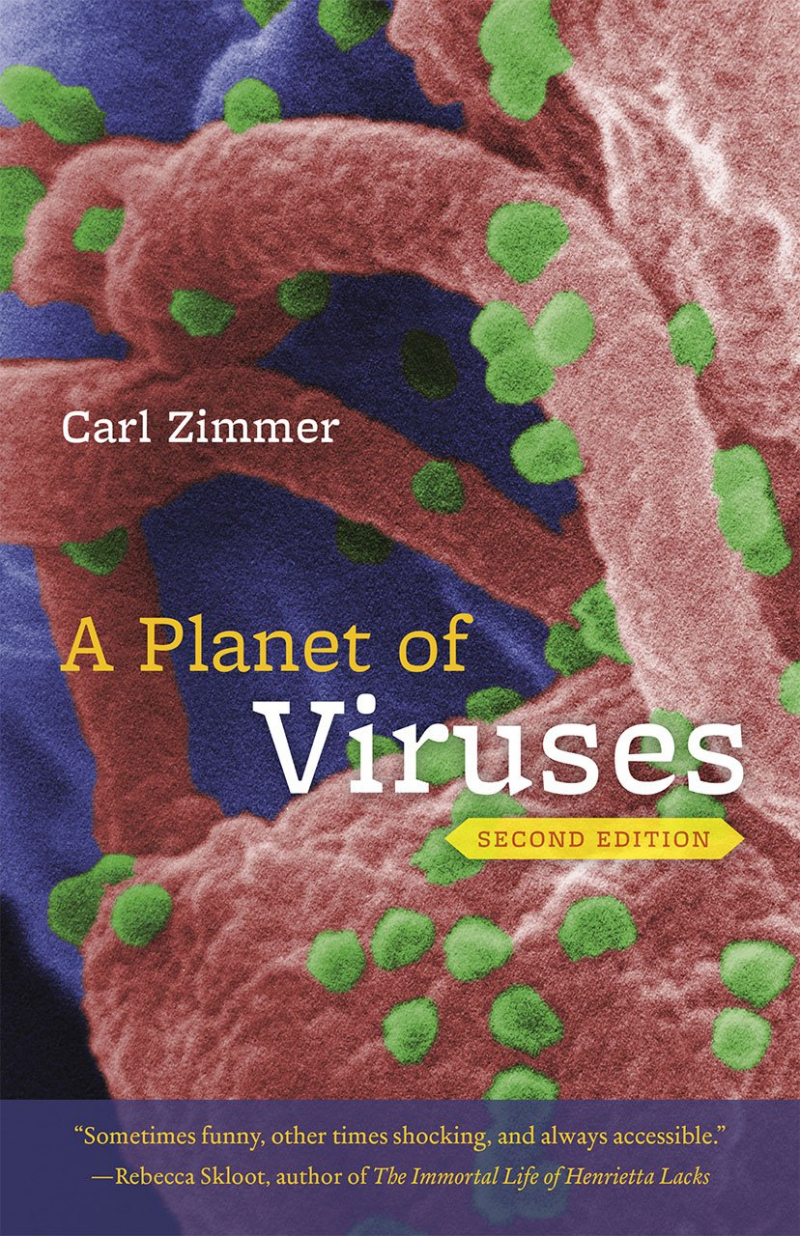
https://www.amazon.com/ 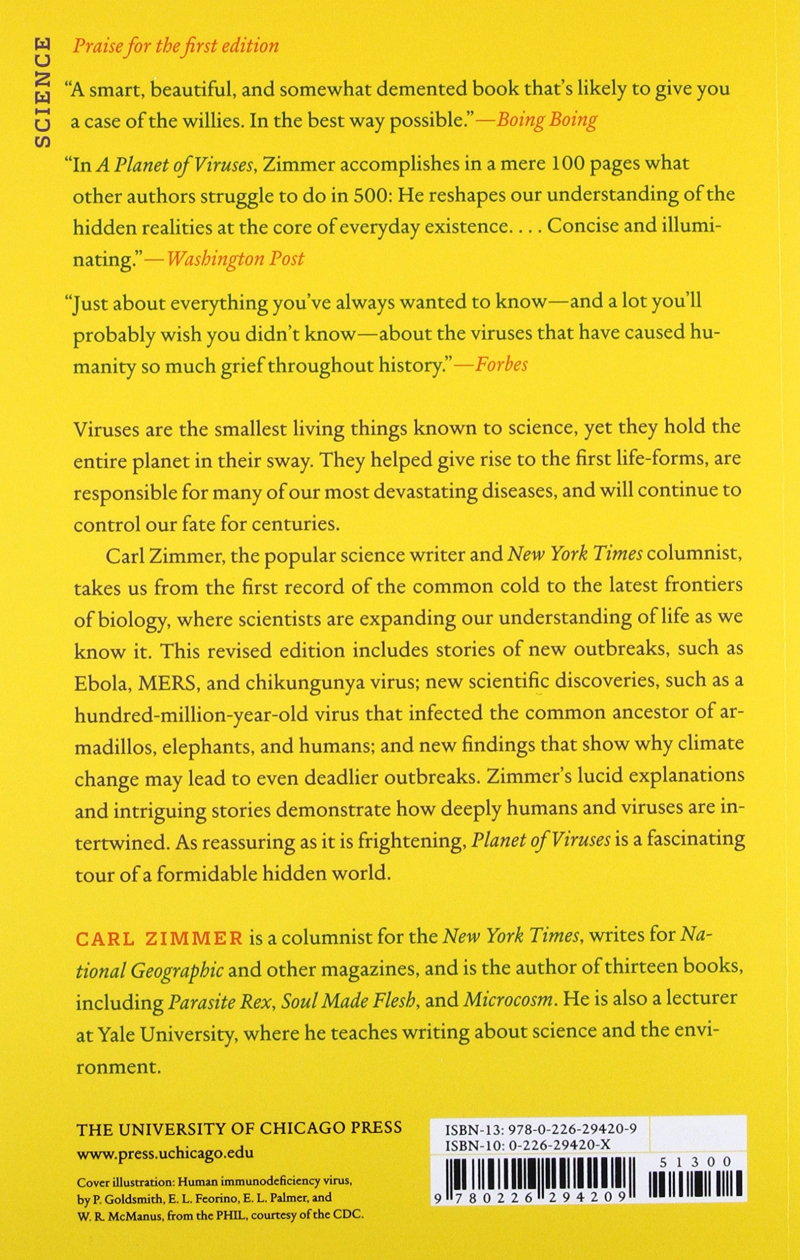
https://www.amazon.com/ -
Sonia Shah is a prize-winning author and science journalist. Her articles on science, politics, and human rights have appeared in the New York Times, Wall Street Journal, Foreign Affairs, Scientific American, and other publications. Her work has been featured on Fresh Air, RadioLab, and TED, where her talk, "Three Reasons We Still Don't Have Malaria," has been viewed by over 1,000,000 people worldwide.
Her 2010 book, The Fever, was described as a "tour-de-force history of malaria" by the New York Times, "rollicking" by Time, and "brilliant" by the Wall Street Journal, and was long-listed for the Royal Society's Winton Prize, the world's most prestigious prize for science writing. It is regarded as one of the best books on infectious disease.
Malaria has recently emerged as a cause celebre for fashionable philanthropists. Bill Gates, Bono, and Laura Bush are just a few of the celebrities who have lent their names—and opened their wallets—in the hopes of putting an end to the disease. Still, in an era when every new disease causes panic, why aren't we doing more to combat one of our oldest foes? And how does a pathogen that we've known how to prevent for over a century continue to infect 500 million people each year, killing nearly one million?
Sonia Shah, a journalist, sets out to answer those questions in The Fever, delivering a timely, inquisitive chronicle of the illness and its impact on human lives. She discovers that over the centuries, we've placed our hopes in a variety of drugs and technologies, only to have those hopes dashed. From the settlement of the New World to the construction of the Panama Canal, through wartimes and the advances of the Industrial Revolution, Shah follows malaria's erratic rise and the tragedies that followed, revealing a parasite as persistent as the insects that carry it. The Fever captures the strangely fascinating, devastating history of this long-standing thorn in humanity's side with distinguished prose and original reporting from Panama, Malawi, Cameroon, India, and elsewhere.
Author: Sonia Shah
Link to buy: https://www.amazon.com/Fever-Malaria-Ruled-Humankind-Years/dp/0312573014/
Ratings: 4.7 out of 5 stars (from 72 reviews)
Best Sellers Rank: #229,168 in Books
#132 in Viral Diseases (Books)
#160 in Communicable Diseases (Books)
#265 in History of Medicine (Books)
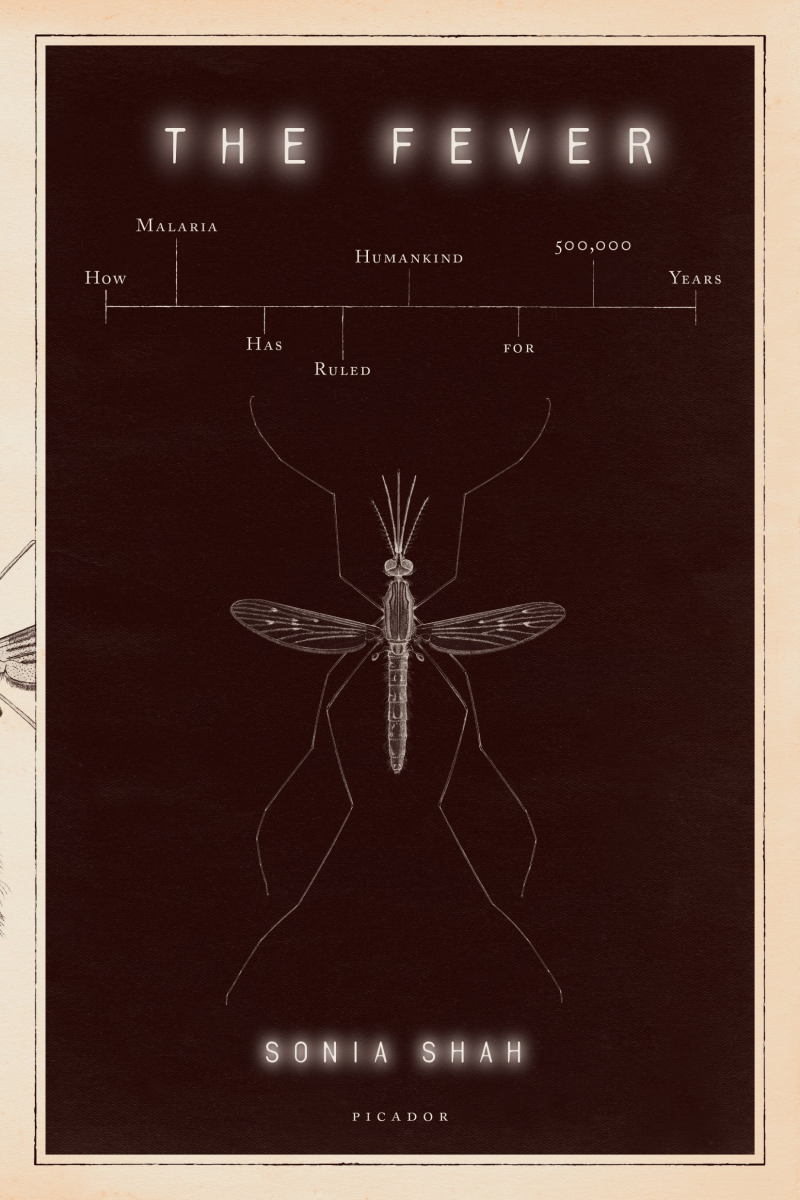
https://www.amazon.com/ 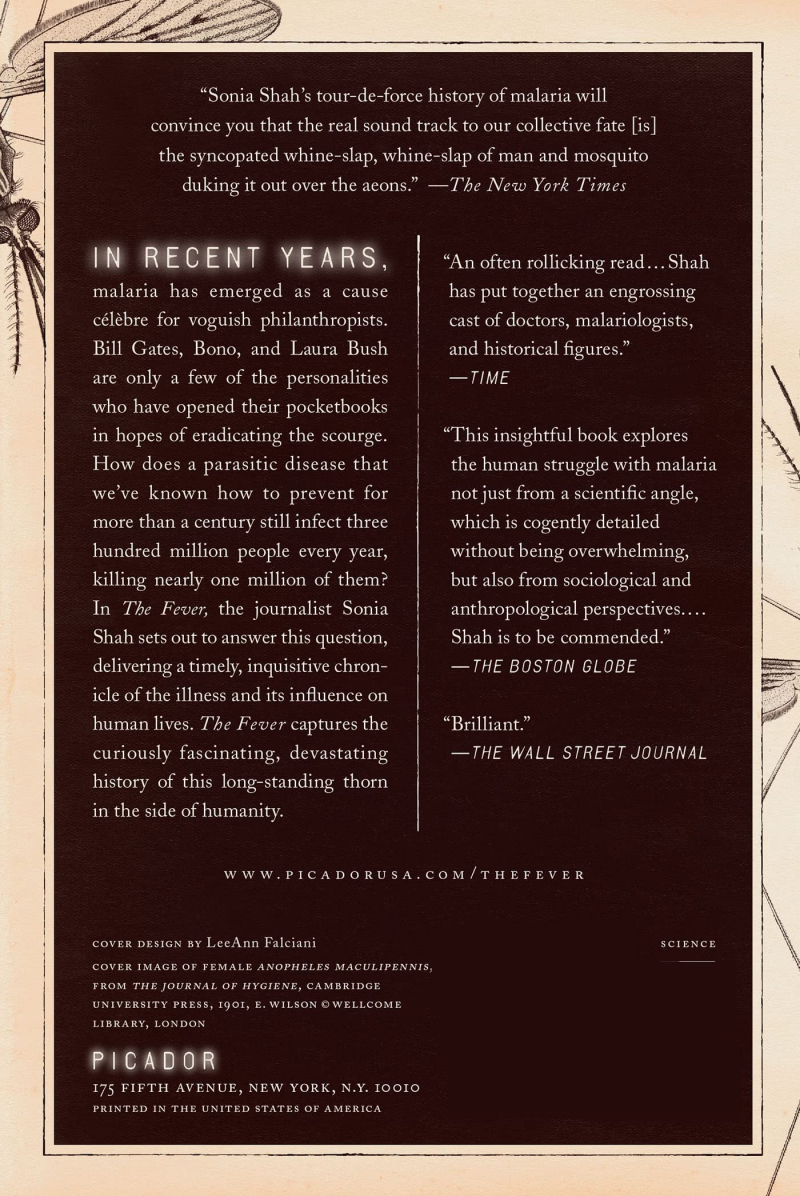
https://www.amazon.com/














